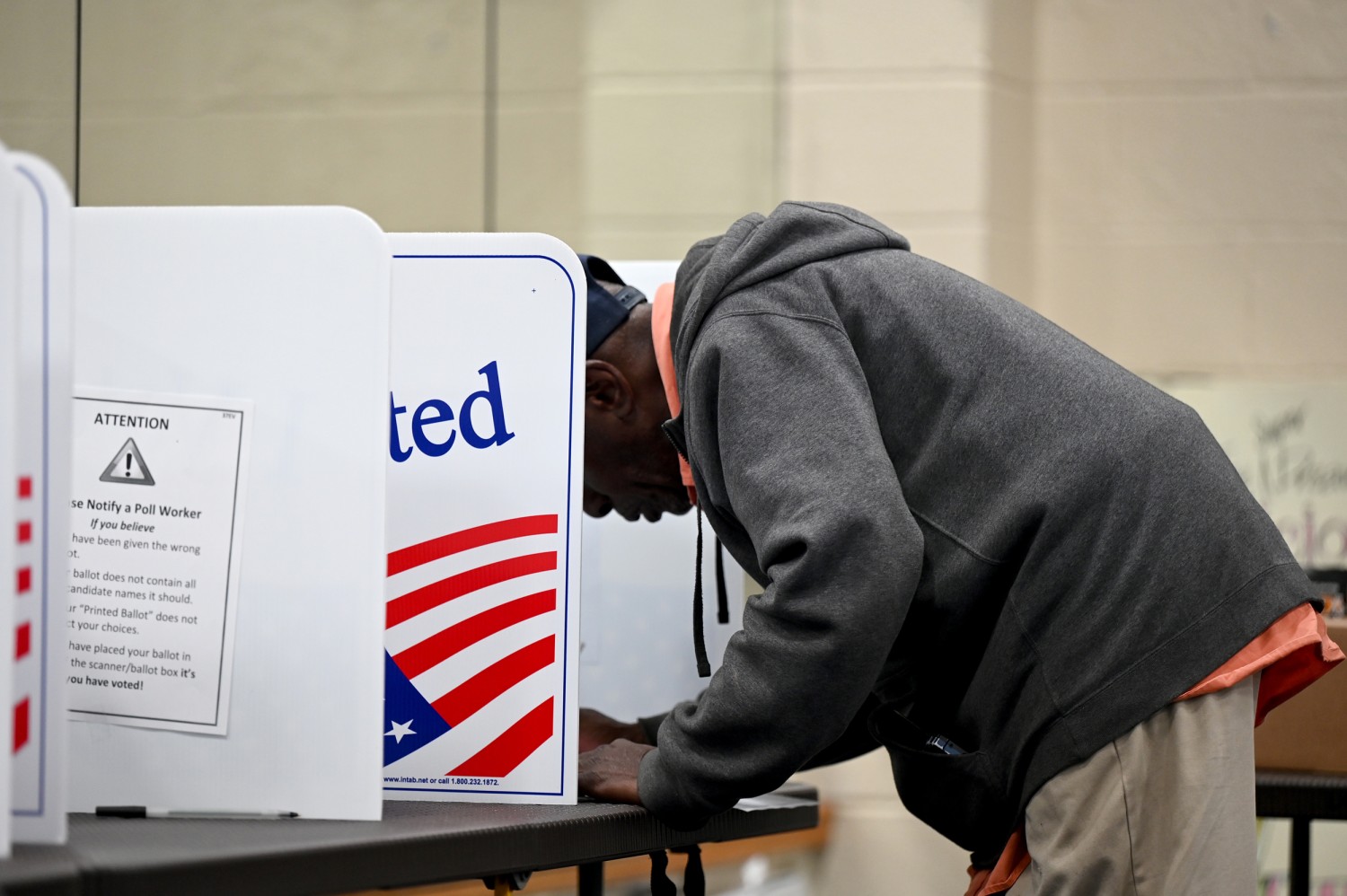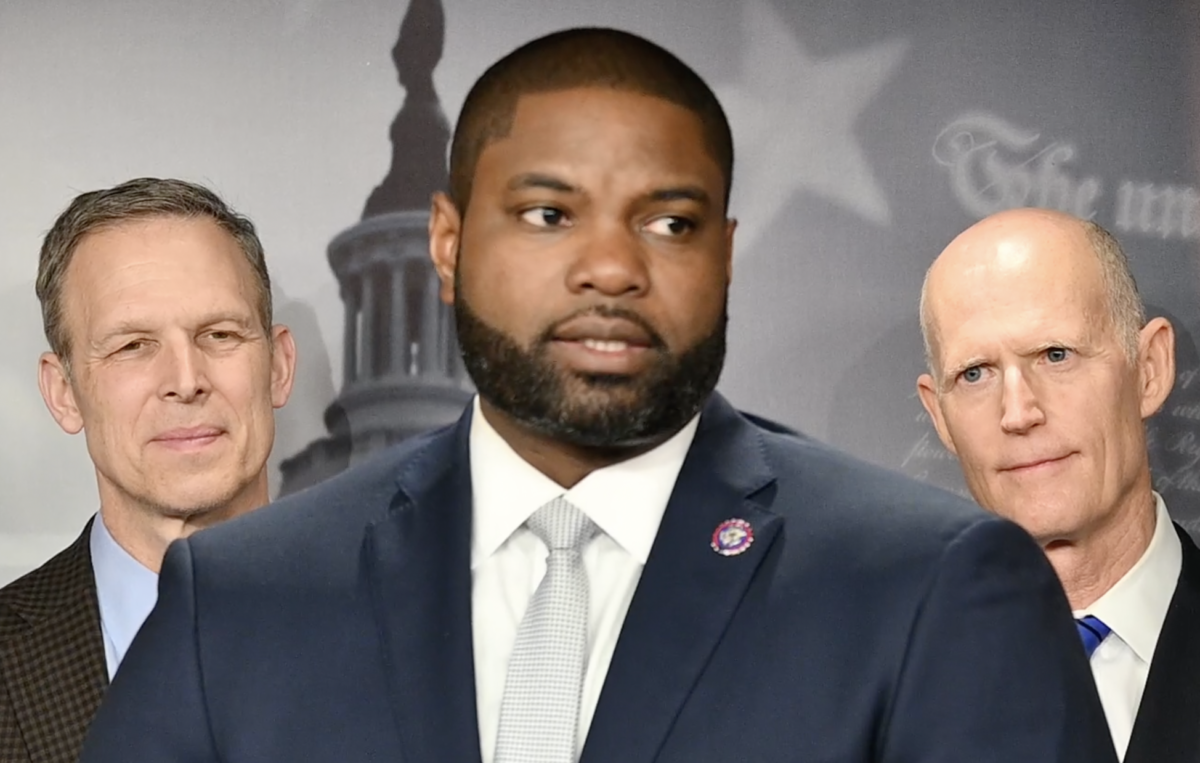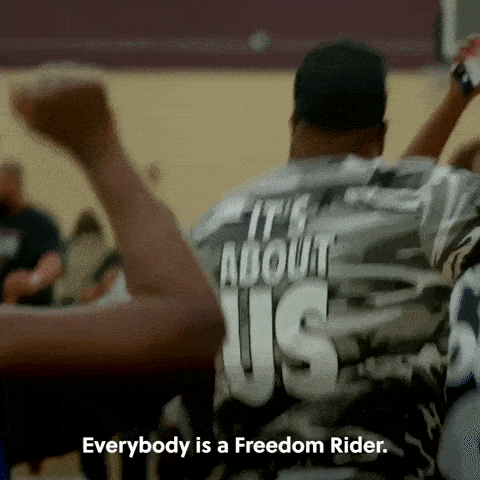- BlackVoter.Org
- Posts
- BLACKVOTER.ORG #70
BLACKVOTER.ORG #70
Empowering Awareness: Stay Grounded With Blackvoter.org Newsletter!



This article discusses the political journey of Senator Tim Scott, from being a challenger to former President Donald Trump to becoming a champion for Trump. Some highlights from the article include:
• Tim Scott has been a constant presence in Trump's orbit since dropping his own presidential bid.
• Scott is considered one of the top candidates to be Trump's vice-presidential pick in November, making him the first Black man nominated on a Republican ticket.
• Republicans argue that Scott would be an excellent strategic choice for Trump because he could appeal to Black voters and has humble roots.
• Scott grew up in a single-parent home in South Carolina and faced struggles and challenges throughout his life.
• Scott launched his own presidential bid but suspended the campaign and has been campaigning for Trump since then.
• Trump has been working to build support among Black voters, and a Scott pick could encourage them to take a second look at the former president.
• One of the biggest questions about Scott's potential running mate role will be how aggressive and loyal he will be on the campaign trail.
Overall, Senator Tim Scott has transformed from a Trump challenger to a potential Trump champion, and his background and appeal could be valuable to Trump's campaign, particularly in attracting a more diverse voter base.

The events of 2020, particularly the racial reckoning sparked by the murder of George Floyd, set off a new kind of political backlash in the United States. While many Americans showed support for racial justice and the Black Lives Matter movement, others pushed back and called for law and order. This backlash manifested in various ways, including the deployment of the National Guard by then-President Donald Trump to control protests, the passage of regressive laws that restrict voting rights and target marginalized communities, and the rise of vigilantism, such as the case of Kyle Rittenhouse. Historically, backlash politics have characterized periods of racial progress, and the recent backlash signifies a fear among conservatives that social movements for equality and justice will threaten their power and privilege. The current era of backlash is marked by a politics of grievance, focused on cultural grievances rather than coherent policy agendas. However, backlash movements are not inevitable or all-powerful, and they can face opposition from those committed to democratic values.

President Joe Biden and Vice President Kamala Harris have been invited to attend the National Newspaper Publishers Association (NNPA) annual national convention to mobilize Black voters. The president launched a nationwide effort in Philadelphia to revive the coalition that helped propel him to the White House in 2020. The Biden campaign has planned events in battleground states to engage Black voters, including Black church engagement in Arizona and community hub events in Michigan. The campaign also plans to invest in Black media and outreach, creative engagement efforts, and innovative organizing initiatives. Recent surveys have shown that Trump won more than 20% of Black voters in battleground states, which would be a historic high if it translates to votes in November. The NNPA convention will address the challenges and opportunities for political parties to share their messages with the media.

In a recent episode of "The View," co-host Sunny Hostin warned President Joe Biden not to remove Vice President Kamala Harris from the ticket for the 2024 election, as it could cost him crucial support from Black voters. Hostin highlighted the significant role Black voters played in Biden's 2020 victory and emphasized the importance of Harris's presence on the ticket. She stated bluntly, "I would be very careful, President Biden, about getting rid of Kamala Harris because we will not support you. We will not vote for you." Hostin's warning was met with differing opinions from her co-hosts, with some dismissing it as speculation. However, Hostin stood firm on her position, stating that even if Biden selected another Black woman as his running mate, it would not be enough to maintain the Black vote. The ongoing concerns within the Democratic Party about maintaining strong support from Black voters were reflected in the debate.


In this article, we explore the best political cartoons on Donald Trump. The cartoons provide a humorous and satirical take on Trump's presidency, highlighting some of the most noteworthy and controversial moments of his time in office. Here are the key highlights from the article:
• The editorial cartoons offer a unique perspective on Trump's presidency, using humor to critique his policies and actions.
• The cartoons address a range of topics, including Trump's handling of the coronavirus pandemic, his relationship with foreign leaders, and his interactions with the media.
• Many of the cartoons focus on Trump's larger-than-life personality and his penchant for controversy.
• The artists behind these cartoons employ various artistic styles and techniques to convey their messages, making each cartoon a unique and visually engaging work of art.
• Overall, the collection of political cartoons provides a lighthearted yet thought-provoking look at Trump's presidency and the impact it had on the country.
Whether you agree with Trump or not, these cartoons are sure to make you laugh, think, and perhaps even reconsider your own opinions. Check out the article to see some of the best political cartoons on Donald Trump and gain a new perspective on his time in office.

The U.S. Supreme Court's recent decision in the South Carolina case, Alexander v. NAACP, is another blow to the power of Black voters. In this case, the court made it more difficult to prove race discrimination cases, which will disproportionately affect minority communities. This decision comes after previous rulings that invalidated key provisions of the Voting Rights Act and allowed partisan gerrymandering to continue. Here are some highlights from the article:
• In 2013, the Supreme Court invalidated preclearance requirements of the Voting Rights Act, allowing for discriminatory voting provisions to be enacted.
• The court's decision in Rucho v. Common Cause in 2019 prohibited political gerrymandering cases from being heard in federal courts.
• The recent South Carolina decision expands the loophole created by the Rucho ruling, making it even harder to prove race discrimination.
• The court's decisions effectively favor Republican states and hinder the rights of Black voters.
• This decision creates an incentive for heavily racialized political parties to claim that their actions are purely partisan and not racially motivated.
The author argues that these decisions undermine democracy and perpetuate the disenfranchisement of Black voters.

Former President Donald Trump's harder line on immigration seems to resonate with many Americans, according to recent polls. About half of Americans surveyed said they would support mass deportations of undocumented immigrants. The United States has seen record numbers of migrant apprehensions at the southern border for three consecutive years, which has contributed to the public's concerns about immigration. Trump's restrictive approach to immigration, both legal and illegal, gained support from Americans of various political affiliations. Immigration remains a challenging issue for President Biden, and even some Democratic mayors have requested federal support to handle the migrant populations in their cities. Overall, public attitudes on immigration in the U.S. are complex and constantly evolving.

The Supreme Court has sent a dispute over Arkansas' Republican-drawn congressional map back to a lower court. Last month, the Supreme Court ruled on South Carolina's congressional map, making it more difficult to bring racial gerrymandering claims. In the Arkansas case, the lower court had concluded that the plaintiffs, Black voters and politicians, failed to provide enough evidence to show that race was the predominant consideration when the new map was drawn. The plaintiffs argue that the map in question split a single community of 140,000 Black people into three different districts, diluting the Black vote and making it difficult for them to vote for the candidates of their choosing. The Supreme Court has asked the lower court to review the case again in light of their ruling on the South Carolina case. This decision comes as a separate case challenging the same map is set to go to trial next year.

In this engaging article, the author explores the power of refusal as a political act, particularly among Black Americans. The author emphasizes that refusal is not just a resistance to oppression, but a forceful assertion of dignity, respect, and humanity. Some highlights from the article include:
• The story of the author's great-grandmother, who refused a white doctor's offer of lifelong servitude in exchange for saving her daughter's life.
• The importance of collective refusal and its role in movements for emancipation and civil rights, such as the Underground Railroad and the Black Panther Party.
• The resilience and creativity of Black culture, which refuses to be defined by oppression and has produced art, music, and community that celebrate joy, solidarity, and freedom.
• The author concludes by asserting that refusal is an ongoing process that allows oppressed people to carve out their own destinies and reject the false choices presented to them.
Overall, the article highlights the transformative power of refusal in shaping the national story of Black Americans and calls for continued activism and resistance to dismantle systems of oppression.

Eric Trump, son of former President Donald Trump, claimed in a recent interview with Fox News that his father's conviction on 34 felony charges has caused certain segments of the population, including African American voters, to swing towards supporting him. However, critics have slammed Eric Trump for his claim and his choice of words. Some highlights from the article include:
• Eric Trump claimed that his father's conviction has made certain segments of the population more likely to vote for him.
• He specifically mentioned the African American vote, saying that it is swinging over to Donald Trump "in spades."
• Critics on social media criticized Eric Trump for his use of the term "in spades," which is considered a racial slur.
• Some critics also pointed out the irony of Eric Trump claiming support from the African American community, considering his father's controversial history with race relations.
• Overall, Eric Trump's claim about black voters turning to his father was met with skepticism and backlash from critics.

House Republicans are making efforts to sway Black voters with conservative principles, as President Biden launches his Black Voters for Biden effort. Black Republicans, such as Florida Rep. Byron Donalds, believe that "everything is in play" and that Trump has a chance to gain more support from black voters. A recent poll showed that Biden has lost 16% of support from the black voting bloc, but Miami-Dade Democratic Party Chair Shevrin Jones argues that there is no reason to worry. However, Black Republicans disagree and believe that Trump can make significant gains with black male voters in particular. Texas Rep. Wesley Hunt believes that if Trump can secure between 25% and 30% of the black male vote, Democrats cannot win. The Republicans are planning an event in Philadelphia titled "Congress, Cognac and Cigars" to discuss the potential for black voters to support Trump. Donalds and Hunt both express optimism about the event and Trump's chances of winning in 2024.
Amanda Seales, comedian and actress, has announced that she will not be renewing her contract as a co-host on the syndicated talk show "The Real" because she feels her voice is being stifled and not respected by those at the top. Seales made the announcement on Instagram, saying that she cannot continue to work in a space where she cannot speak to her people in the way they need to be spoken to. In the video, she also mentions feeling disrespected and being spoken to in disparaging ways. Seales believes that black voices need to not only be heard but respected at the top as well. "The Real" has not yet commented on Seales's decision. Some highlights from the article include:
• Seales names her decision not to renew her contract with "The Real" as her own instead of being let go from the show.
• She expresses her feelings of being stifled and disrespected in her role.
• Seales believes that black voices should be respected at the top and that necessity is not being recognized on the show.
Overall, Amanda Seales has made the decision to step down from her role as a co-host on "The Real" due to feeling that her black voice is not respected at the top.

Thank you
Please support
"Introducing 'Knox Discovers Democracy' – a delightful journey through the USA political process tailored for young children. Join Knox as he embarks on an adventure to learn about democracy, elections, and the power of voting. Through colorful illustrations and engaging storytelling, children will explore the importance of civic engagement and discover how their voices can shape the future. Get ready to inspire the next generation of active citizens with Knox's empowering tale!" Free ebook download Link below
